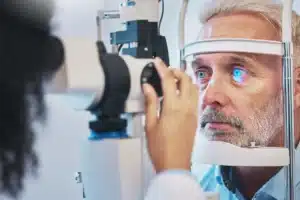Author: Nicole Latimer, CEO
As Medrio’s CEO, I engage with hundreds of CROs, sponsors, and site representatives each month and have noticed a few common misconceptions that many contract research organizations (CROs) share regarding the role of eClinical technology that can hold them back from providing truly excellent support for their sponsors.
The truth is that eClinical technology is frequently misinterpreted as a replacement for CRO support when – in actuality – the right eClinical technologies augment the work of a CRO. In fact, CROs can leverage eClinical technology to more effectively differentiate themselves in the crowded marketplace and provide sponsors with better clinical trial support.
Misperception 1: Therapeutic Expertise Is Everything
The first big misconception is that many CROs think therapeutic expertise is the most important component of differentiating themselves in the eyes of a prospective sponsor. These CROs frequently tout how many years of experience their staff has worked in particular therapeutic areas (TAs) or indications as proof of the CRO’s abilities to execute strong clinical trials. However, the truth is much more complicated.
It is true that sponsors often seek out CROs who have a deep experience in a particular TA or indication, particularly when the study area is known to have costly and time-intensive recruitment processes. However, industry reports, including ISR Reports’ 2022 research into CRO selection, are increasingly highlighting operational excellence as a key factor in a sponsor’s assessment of a potential CRO.
Simply put, having the right sites and participant pools in a specific TA is not enough anymore. When presented with two like CROs, sponsors will select the one that can execute through operational excellence. Sponsors expect you to have sites and participants AND operational excellence.
The right eClinical technology plays a vital role here. The right solutions and services establish and confirm operational excellence in a way that TA experience just doesn’t validate.
Misperception 2: Process Complexity Equals Quality
Since everyone else will be talking about their expertise in TA, you could stand out as a CRO by demonstrating staff experience in the given therapeutic area AND your operational capabilities and quality. Differentiate yourself by demonstrating how you are streamlining the process without compromising collaboration or compliance.
Here are a few examples of how you can differentiate yourself on your process:
- Have a clear project plan that outlines each step in the clinical trial process and identifies who is accountable.
- Present a clear project timeline that explains when each event will happen, what happens if it doesn’t, and how your team can get the pace back on track.
- Put forth service-level agreements so that the sponsor knows, for example, that if a target of 10 sites is not enrolled, this is what occurs.
Choosing the right eClinical tech comes into play here too. If your CRO selects an eClinical vendor as a preferred partner, your team will have a firm understanding of exactly what they can promise and how it will be delivered.
Misperception 3: Being Technology-Agnostic is Best
Some CROs think that they will win more business if they remain vendor-agnostic. Sponsors tell us that they are hiring their CRO with the expectation that the CRO will help them to navigate today’s environment and to give their expert opinion – and that includes their input on the best technology for that particular study.
As such, CROs can differentiate themselves by clearly articulating why a particular eClinical system is a great match for the study in question. Instead of putting the onus on the sponsor to select a preferred technology, a CRO can identify which eClinical solution has the specific functionality required to fulfill the protocol and meet overall timelines. For instance, the study could have an adaptive design that needs to be tied to the support the eClinical vendor provides. Alternatively, the study may have a go/no go point based upon certain data, so sponsor access to that data in real-time requires an integrated system, especially when ePRO is an endpoint.
Selecting specific eClinical tech products and services allows a CRO to become an expert in using that technology, saving time and money for any research project when compared to picking a different technology each time. The more you understand why one solution is better, the more effectively you are going to be able to execute that solution. You will be able to introduce greater operational efficiency, minimize disruption to site workflows that could be caused by introducing new technology and improve access at each touchpoint.
Misperception 4: Sponsors Only Want to See Pristine Data
Many CROs have the misperception that sponsors only want to see data that is perfect, all organized and cleaned, and that sponsors prefer to wait to see the data until it is pristine. However, that is not the preference that we hear from the sponsors that we engage. Sponsors increasingly do not have time to wait until the data is perfect.
The sponsors that we speak to value real-time data and regular reporting over waiting for a pristine product. They want easy access to raw data, and some want the ability to run their own analysis or even change the design of the study depending on the data they receive. To meet that need, CROs need to have the right technology in place. Choosing the right eClinical tech helps differentiate your CRO by establishing early on what reporting and real-time capabilities you can reasonably offer given the parameters of the study protocol. If you show clearly in your proposal how your chosen technology gives sponsors access to real-time data so that they can track and react to information as it becomes available, you give the sponsor a concrete reason to choose your CRO.
Are eClinical Tech Misconceptions Holding Your CRO Back?
Myths around eClinical software and services could be limiting your business. Many CROs believe that sponsors prefer overly complex processes, technology-agnostic approaches to vendors, and a refusal to share anything less than a pristine product – but these misconceptions hold contract research organizations back. Instead, differentiate your company by selecting an eClinical technology that augments your clinical trial services and allows your company to level up its offerings to provide what sponsors really want – consistent quality.



